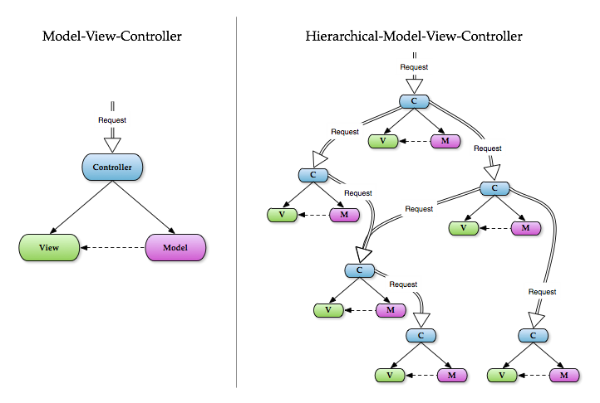Hierachical Model View Controller (HMVC)
HMVC stands for Hierarchical Model View Controller.
Modularization – This helps in reducing the dependencies between the disparate parts of the application.
Organization – It helps you organize your work folder-wise to make your workload lesser.
Reusability – This feature of HMVC gives you the benefit to reuse your code multiple times. Also as per the creativity of developers they can use different codes for the same kind of work design.
Extendibility – It makes your application more extensible without sacrificing the ease of maintenance.
File Name :

File Name :
Extendibility: We can add parts to the application easily with little risk of breaking the application. For example, widgets.
Organization: Super tidy file separation and folder organization!
Reusability: If implemented well, the developer should be able to reuse every bit of code they write.
Modules
A module contains the model, view and controller folder for a certain section of the app.
File Name :
How to run Modules
download core files and paste Application/core directory.
create modules directory in Application Directory.
Create the directory application/modules/itech/
create MVC Directory under itech folder
Student.php
defined('BASEPATH') OR exit('no direct script access allowed');
class Student extends CI_controller
{
public function __construct()
{
parent::__construct();
}
public function index()
{
$this->load->view('stud');
}
}
?>
View
File Name : stud.php
<head>
</head>
<body>
<h1>Hello Sara </h1>
</body>
</html>
Model
File Name : Stud_model.php
defined('BASEPATH') OR exit('no direct script access allowed');
class Stud_model extends CI_model
{
public function __construct()
{
parent::__construct();
}
}
?>
File Name :
Run your project
File Name :
Example:- MY_Controller
File Name : application/core/MY_Controller.php
if (!defined('BASEPATH'))
exit('No direct script access allowed');
/* load the MX_Router class */
require APPPATH . "third_party/MX/Controller.php";
class MY_Controller extends MX_Controller {
function __construct() {
parent::__construct();
}
}
/* End of file MY_Controller.php */
/* Location: ./application/core/MY_Controller.php */
Controller of modules
File Name :
defined('BASEPATH') OR exit('no direct script access allowed');
// class Student extends CI_Controller
class Student extends MY_Controller
{
public function __construct()
{
parent::__construct();
}
public function index()
{
$this->load->view('stud');
}
}
?>
Error : Unable to locate the specified class: Session.php
File Name :
So in your case you would start your class with:
class HOME extends MX_Controller {}
Instead of:
class Home extends CI_Controller {}
Error : Unable to locate the specified class: Session.php
File Name :
class Welcome extends MY_Controller {
public function index()
{
$this->load->view('welcome_message');
}
}
Previous Next
Trending Tutorials
0.0 / 5
0 Review
 What is Codeigniter
What is Codeigniter 